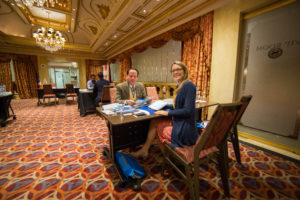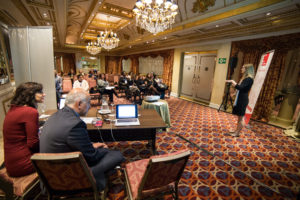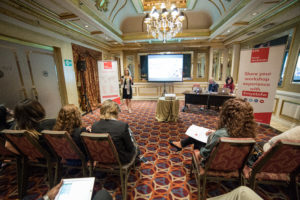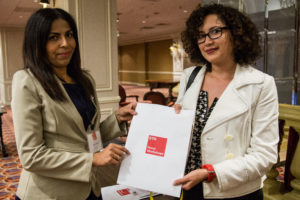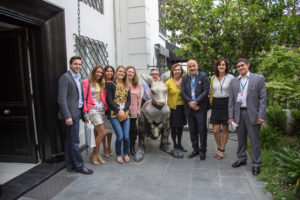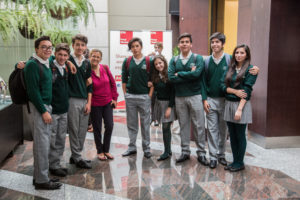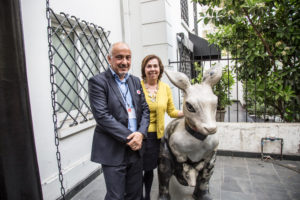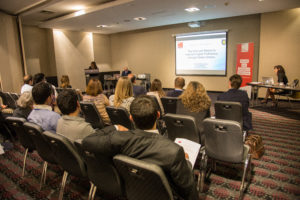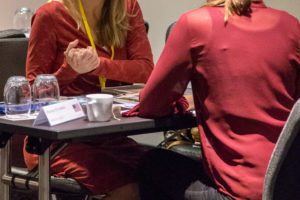Warning: Your International Students Are Having a Negative Experience!
Dropping grades, poor attendance – this is just the tip of the iceberg. It’s only a symptom of a negative experience while studying abroad, but not the cause.
Psychologist Mihaly Csikszentmihalyi has dedicated many years of his work to the research on happiness and his key findings point towards experiencing a “flow”:
“Flow” is a mode when a person is highly focused, to the point where nothing else matters. It’s as if the entire world ceases to exist. You can reach this state only when there is a balance. There is a task that is challenging, but matching your skills and not too demanding. Overly complicated tasks invite anxiety just like activities that are not challenging enough cause boredom. Finding an equilibrium between challenge and skill thus becomes the main task for educators looking to have a happy international student body.
Now, keeping the concept of “flow” in mind, let’s discuss what we should watch out for to notice when international students are having a negative experience.
-
Student is not active in class
Lack of participation can be the result of many reasons. It could be due to cultural differences. For example, when the method of learning is unfamiliar, the challenge to participate may be too complex. It could also be related to having difficulties understanding the topic. Remember that anxiety arises when the challenge is too big! Sometimes it’s just that students are more introverted. In those cases, lack of engagement stems from not feeling comfortable enough in the current study environments.
Using different approaches to studying can help here. Try individual effort, group discussions, small groups work or blended learning. Students will get more engaged when they have a clear challenge set. So try and structure your curriculum around practical projects where students can participate both individually and in groups.
-
Student experiences communication difficulties
Fear of misusing a foreign language or lacking proper knowledge of academic vocabulary doesn’t just make international students passive in the classroom. It results in forming weaker social ties and having an overall less positive and diverse study abroad experience. This problem is all about perceiving communication in another language as a bigger challenge than it actually is. International students typically deal with this anxiety by deciding to hang out only with people who speak their mother tongue.
The key here is to be proactive and offer different opportunities to practice the hosting country language. Encourage language exchange classes or open language learning groups. Don’t hesitate to openly ask your current international students for assistance. Invite them to share with new students their own experiences about improving their language skills.
-
Student is not involved in any extra-curricular activities or social groups
There’s nothing wrong with being an introvert. What needs your attention though are cases of total social isolation either due to choice or circumstances. If teachers and other faculty staff cannot tell who is the closest fellow student of another student, or what is their social group outside studies, you probably have a problem.

Lack of a structured community and adequate opportunities to build long-term relationships or develop social skills can result in isolation. If you notice that an international students is not participating in any clubs or activities, they might be either unhappy with the range of options they have, or lack sufficient information on how to get involved, or do not see the value of joining. Figuring out the exact reason will help you make the right suggestions and provide a solution.
The best way to avoid such situations is through prevention. Make sure your introduction events are catering for the needs of people with all kinds of communication style and preferences. Let your students meet online and connect on a deeper level during discussion sessions, group work and individual talks. Most importantly – while working together on exciting projects. If you notice that a student is a lone wolf way into school year, a few one-to-one talks will most likely help you get into their situation and find out if solitude was a choice or a circumstance – and then act accordingly.
Do you have any tips of how to prevent students from having a poor experience while studying abroad? What are the first signs you notice?
Leave a comment below!











